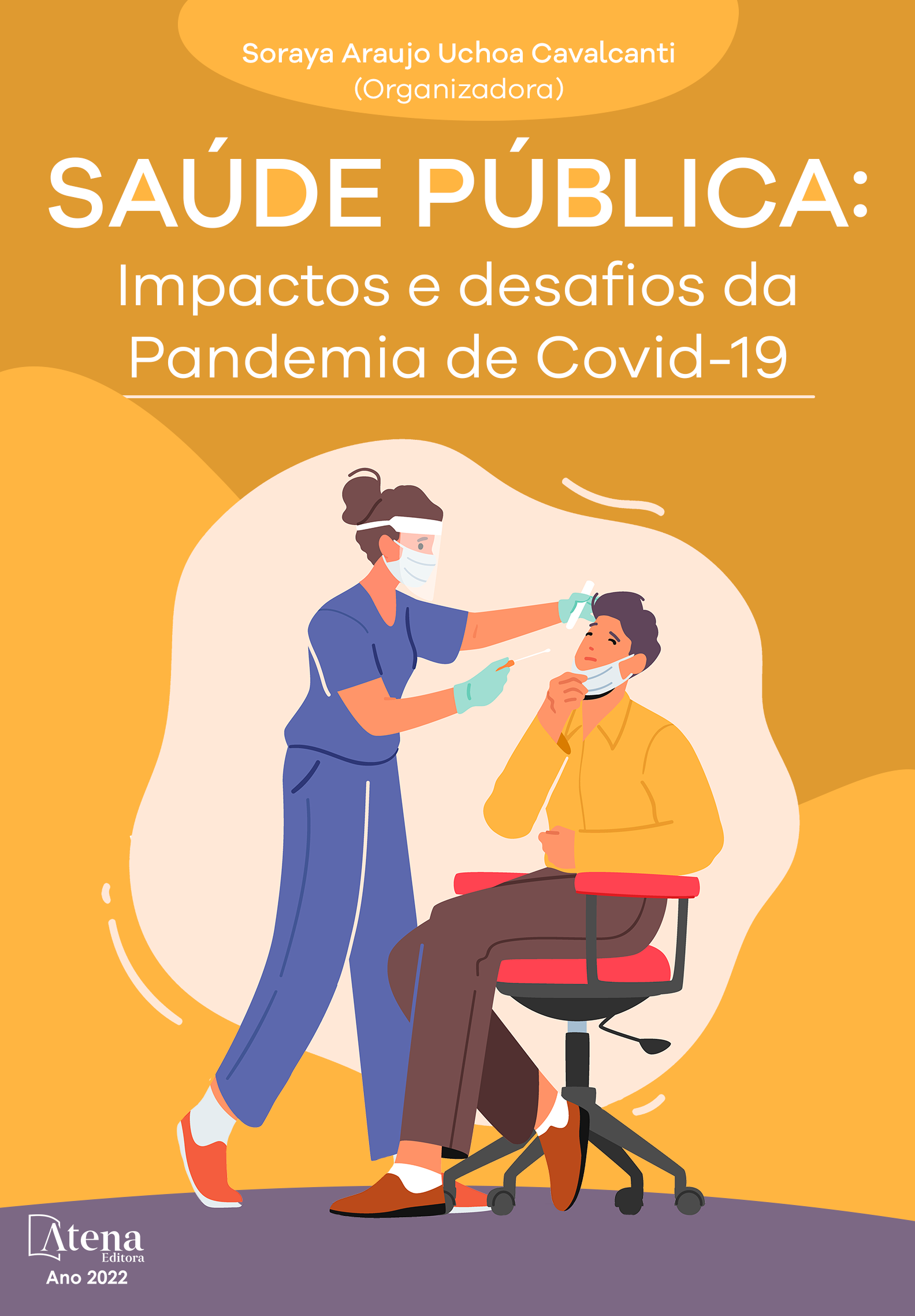
PROMOVENDO AÇÕES EDUCATIVAS PARA OS SERVIDORES DA REDE MUNICIPAL DE ENSINO: POSSIBILIDADES E DESAFIOS PARA A RETOMADA SEGURA DAS AULAS PRESENCIAIS
O isolamento causado pela pandemia do Covid-19 trouxe mudanças significativas e afetou de forma direta os mais variados setores da sociedade. No âmbito escolar não foi diferente, com a suspensão das aulas presenciais nas diferentes faixas etárias, os discentes e equipe pedagógica foram obrigados a se afastarem do ambiente escolar. Nesse contexto fez-se necessário a criação de estratégias, ações e atividades que viabilizassem uma retomada segura das aulas presenciais, garantindo um processo de ensino-aprendizado efetivo, alicerçado nas diretrizes e normatizas educacionais vigentes. Dessa forma, o objetivo deste estudo foi descrever o desenvolvimento de ações educativas para os servidores da rede municipal de ensino: possibilidades e desafios para a retomada segura das aulas presenciais, destacando a importância da atuação fonoaudiológica em tempos de pandemia por COVID-19, mediante um trabalho interdisciplinar e colaborativo. Para tanto, realizou-se um estudo exploratório, de abordagem quanti-qualitativa que foi realizado em uma escola pública de ensino fundamental I, do município de Rio Branco – Acre, durante o 1º semestre de 2021. Participaram desse estudo 46 educadores que estavam no exercício da sua função. Após leitura dos relatórios e relatos dos diários de campo, os dados e resultados encontrados foram organizados em 2 (duas) categorias de análises, levando-se em consideração, de um lado, o desenvolvimento e instrumentalização dessa prática, e do outro, a caracterização dos sujeitos, as experiências vivenciadas, a saber: [1] o perfil sócio demográfico dos servidores da rede municipal de ensino; [2] relato de experiência do desenvolvimento da ação social em saúde intitulada “ArticulAção”: possibilidades e desafios para a retomada segura das aulas presenciais. Observou-se que a maioria dos participantes era do sexo feminino (80,4%), maior de 41 anos de idade (50%), cor branca (43,5%), estado civil casado (47,8%), com ensino superior completo (52,2%), renda familiar mensal de 2 a 3 salários mínimos (60,9%), situação funcional como efetiva (71,7%) e com tempo de serviço na educação infantil de 11 a 15 anos (37%). Dentre os professores 100 % já conheciam o trabalho da Fonoaudiologia, e 95,4% não tiveram contato com o fonoaudiólogo na escola, e em sua totalidade (100%) afirmam que a atuação do fonoaudiólogo na escola é importante mesmo não tendo trabalhado em alguma escola que tivesse tal profissional e 70,2% dos professores relacionam a atuação fonoaudiológica na escola a ações terapêuticas. Constatou-se por meio da realização da pesquisa a detecção das principais dificuldades e problemas enfrentados pelos servidores quanto ao processo de retomada das aulas presenciais. Nesse sentido, os dados coletados fornecem subsídios para direcionamento de políticas públicas educacionais e em saúde que minimizem os prejuízos acarretados, mediante um trabalho colaborativo interdisciplinar, promovendo melhores condições de trabalho e ensino no processo de ensino aprendizagem sustentado na tríade: escola-criança-família.
PROMOVENDO AÇÕES EDUCATIVAS PARA OS SERVIDORES DA REDE MUNICIPAL DE ENSINO: POSSIBILIDADES E DESAFIOS PARA A RETOMADA SEGURA DAS AULAS PRESENCIAIS
-
DOI: 10.22533/at.ed.42422140311
-
Palavras-chave: Covid-19; educação; escola; fonoaudiologia educacional; saúde, retomada presencial.
-
Keywords: Covid-19; education; school; educational speech therapy; health, face-to-face resumption.
-
Abstract:
The impact caused by the COVID-19 pandemic, directly and indirectly affected all continents, measures of social distancing suggested by the WHO and adopted in most countries, caused the closing of schools and suspension of in-person classes, becoming one of remotely, thus giving rise to negative impacts on the teaching/learning process. Through this situation, speech therapy comes into action with the multidisciplinary team, promoting educational strategies, guidance and monitoring, in order to support family members and teachers in the adaptation of students in a situation of social isolation. to present in a different way the importance of speech therapy activities in education with support for educators within the multidisciplinary team in times of pandemic at COVID-19. Material and Methods: This is an exploratory study, with a quanti-qualitative approach that was carried out in a public elementary school I in the city of Rio Branco - Acre, during the 1st semester of 2021. The school is located in a region from the periphery of the second District, the sample consisted of 46 educators who were working in the early childhood education network. After reading the reports and reports from the field diaries, the data and results found were organized into 2 (two) categories of analysis, taking into account, on the one hand, the development and instrumentalization of this practice, and on the other, the characterization of the subjects, the lived experiences, [1] the socio-demographic profile, describe educational actions for the servers of the municipal education network: possibilities and challenges for the safe resumption of classroom classes, [2] report of the experience of social action in health. Results: Most participants were female (80.4%), over 41 years of age (50%), white (43.5%), married (47.8%), with higher education complete (52.2%), monthly family income of 2 to 3 minimum wages (60.9%), functional status as effective (71.7%) and with years of service in early childhood education from 11 to 15 years (37% ). Among the teachers, 100% already knew the work of Speech-Language Pathology, and 95.4% had no contact with the Speech-Language Pathologist at school, and in its entirety (100%) stated that the role of the Speech-Language Pathologist at school is important even though they have not worked in any school that had such a professional and 70.2% of the teachers relate the speech therapy work at the school to therapeutic actions. Conclusion: The developed actions were essential to promote better working and teaching conditions in the teaching-learning process supported by the tripod.
-
Número de páginas: 17
- Ana Maria Rabelo do Nascimento
- Áurea dos Santos Batista
- Natalya Savitry Matos Almada
- Jéssica Amorim de Carvalho Nery
- John Kenede Batista Lima
- Eder Ferreira de Arruda
- Marinês de França Carneiro
- Regiane de Queiroz Moreira Machado
- Bruna de Souza Diógenes


